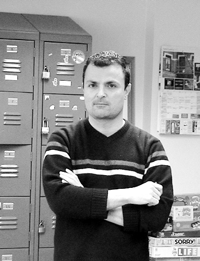City Hall responds to funding shortfall faced by Brooklyn drop-in site for gay mentally ill
Twenty-six organizations that serve New Yorkers with serious mental illnesses, including the only program in the state that specifically helps lesbian, gay, bisexual and transgendered (LGBT) people, have won a brief reprieve from state budget cuts after being told that the city will fund their operations through the end of 2005.
“We thank the Bloomberg administration for stepping in to keep our doors open so we can continue to provide badly needed services to lesbian, gay, bisexual and transgendered people living with mental illness,” said Christian Huygen, a psychologist and director of the Rainbow Heights Club, in a May 10 press statement.
Rainbow Heights, a drop-in center in downtown Brooklyn, was told in a January 31 letter from the city’s health department that its $206,000 contract would be cut by $203,500 as of July 1. The cut resulted from a reduction of $3.15 million in the state budget for mental health services for New York City.
The two-year-old club has roughly 250 clients who participate in counseling groups, social activities and other events five days a week.
Other programs affected by the cut included Hospital Audiences, Inc., which brings arts programming to institutionalized New Yorkers and takes them out to performances, and the Urban Justice Center, which provides legal services to roughly 1,000 mentally ill New Yorkers.
The threatened cuts spawned a “real wave of advocacy and mobilization” among the club members, Huygen said in a February 18 interview. Roughly 20 members wrote approximately 150 letters to city and state elected officials asking that the club’s funding be restored. They also made phone calls to elected officials.
Rainbow Heights also got a hand from the Lambda Independent Democrats, a Brooklyn-based gay political club, the Empire State Pride Agenda, the statewide gay lobbying group, and Democratic City Councilwomen Letitia James, of Brooklyn, and Margarita Lopez, of Lower Manhattan.
In the May 10 statement, Huygen said, “This agency is the only one of its kind in the country. LGBT people living with mental illness are a vulnerable and underserved population. They simply can’t find the support and acceptance they need anyplace else. Building sustainable support for the work that we do is a number-one priority for us.”
gaycitynews.com



































